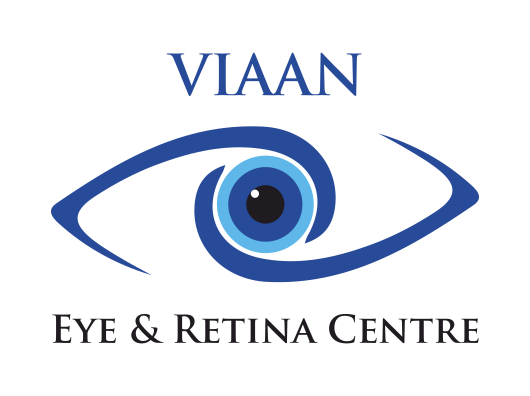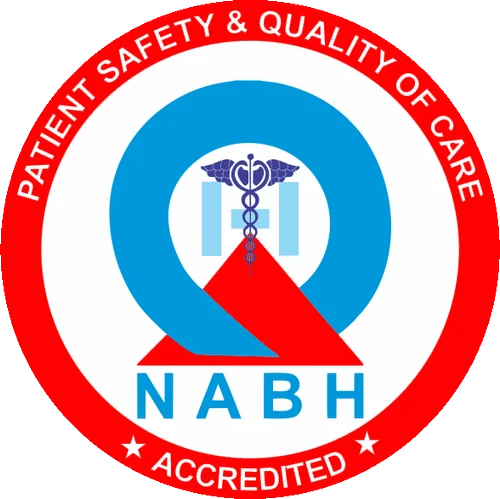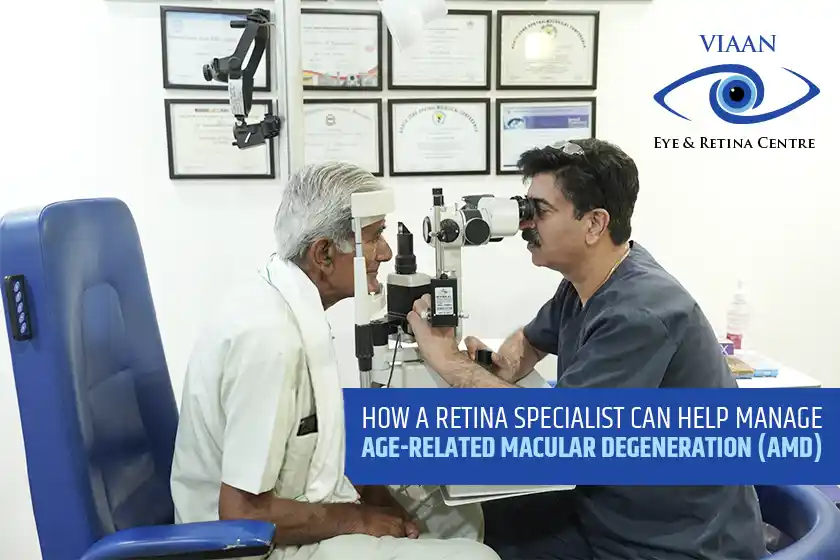Age-related macular degeneration (AMD) is a leading cause of vision loss in people over 50. It affects the macula, the central part of the retina responsible for sharp, central vision needed for activities like reading, driving, and recognizing faces. While there’s no cure for AMD, early detection and management by an ophthalmologist can significantly slow its progression and preserve vision.
This article explores the crucial role of an eye specialist in managing AMD, offering insights into diagnosis, treatment options, and the importance of regular eye exams.
What is Age-Related Macular Degeneration?
AMD occurs in two primary forms: dry AMD and wet AMD. Dry AMD, the more common type, is characterized by the gradual breakdown of light-sensitive cells in the macula. Wet AMD, although less common, is more aggressive and involves the growth of abnormal blood vessels beneath the retina, which can leak fluid and blood, causing rapid vision loss.
The Role of a Retina Doctor
An ophthalmologists is an ophthalmologist with specialized training in diagnosing and treating diseases of the retina, including AMD. They play a crucial role in managing AMD through:
Comprehensive Eye Exams
Retina Surgeon conduct comprehensive eye exams, including dilated fundus examinations and optical coherence tomography (OCT) scans. These exams help detect early signs of AMD, such as drusen (yellow deposits under the retina) in dry AMD or abnormal blood vessels in wet AMD. Early detection is key to initiating timely treatment and preserving vision.
Diagnosis and Staging
The specialists diagnose AMD and determine its stage and type (dry or wet). This information guides the development of personalized treatment plans tailored to the individual’s specific needs and disease progression.
Provide Treatment Options
Retina surgeon offer various treatment options for AMD, depending on the type and severity:
-
Dry AMD
Treatment focuses on slowing progression and preserving remaining vision. This may include lifestyle modifications (such as a healthy diet rich in antioxidants and smoking cessation), nutritional supplements (like AREDS2 formula), and low vision rehabilitation.
-
Wet AMD
Treatment aims to stop or slow the growth of abnormal blood vessels and preserve vision. Anti-VEGF injections, which inhibit the growth of these blood vessels, are the standard of care. Other options include laser therapy and photodynamic therapy.
Proper Monitoring and Follow-up
Retina Doctors closely monitor AMD progression through regular exams and imaging tests. They adjust treatment plans as needed, ensuring optimal management and minimizing vision loss.
Educate the Patient In Each Step
Retina surgeons educates patients about AMD, its progression, available treatments, and the importance of lifestyle modifications. They empower patients to make informed decisions about their eye health and actively participate in their care.
Importance of Regular Eye Exams
Regular comprehensive eye exams by a ophthalmologists are crucial for managing AMD. Early detection allows for timely intervention, which can significantly slow disease progression and preserve vision. Even if you don’t have any symptoms, it’s recommended to have a baseline eye exam at age 40 and then regular exams as recommended by your eye doctor, especially if you have risk factors for AMD, such as:
- Age over 50
- Family history of AMD
- Smoking
- High blood pressure
- Obesity
- Caucasian race
Conclusion
An ophthalmologist plays a vital role in managing age-related macular degeneration. Through early detection, diagnosis, personalized treatment plans, and ongoing monitoring, they can help slow the progression of AMD and preserve vision. Regular eye exams are essential for early detection and timely intervention. If you have any concerns about your vision or risk factors for AMD, consult an eye specialist for a comprehensive eye exam and personalized care plan. Remember, early detection and management are key to preserving your vision and maintaining your quality of life.
At Viaan Eye & Retina Centre, our experienced team of retina specialist is dedicated to providing comprehensive care for AMD and other retinal conditions. We use the latest diagnostic tools and treatment options to deliver personalized care plans tailored to each patient’s individual needs. If you have any concerns about your vision or risk factors for AMD, we encourage you to schedule a comprehensive eye exam with our retina surgeon. Your vision is our priority, and we are committed to helping you preserve it.
Frequently Asked Questions
- What are the different types of AMD?
There are two primary forms of AMD: dry AMD and wet AMD. Dry AMD is the most common and involves the gradual breakdown of light-sensitive cells in the macula. Wet AMD is less common but more aggressive, characterized by the growth of abnormal blood vessels beneath the retina, which can leak and cause rapid vision loss.
- What role does an eye specialist play in managing AMD?
Eye doctors with specialized training in diagnosing and treating diseases of the retina, including AMD. They play a crucial role in managing AMD through comprehensive eye exams, early diagnosis and staging, providing personalized treatment options, monitoring disease progression, and educating patients about their condition and treatment options.
- What are the treatment options for AMD?
Treatment options for AMD vary depending on the type and severity. For dry AMD, treatment focuses on slowing progression and preserving remaining vision through lifestyle modifications, nutritional supplements, and low vision rehabilitation. Wet AMD treatment aims to stop or slow the growth of abnormal blood vessels through anti-VEGF injections, laser therapy, or photodynamic therapy.
- How often should I have my eyes examined for AMD?
Regular comprehensive eye exams by an eye doctor are crucial for managing AMD. It’s recommended to have a baseline eye exam at age 40 and then regular exams as advised by your eye doctor, especially if you have risk factors for AMD such as age over 50, family history of AMD, smoking, high blood pressure, obesity, or Caucasian race. Early detection allows for timely intervention, which can significantly impact disease progression and vision preservation.



